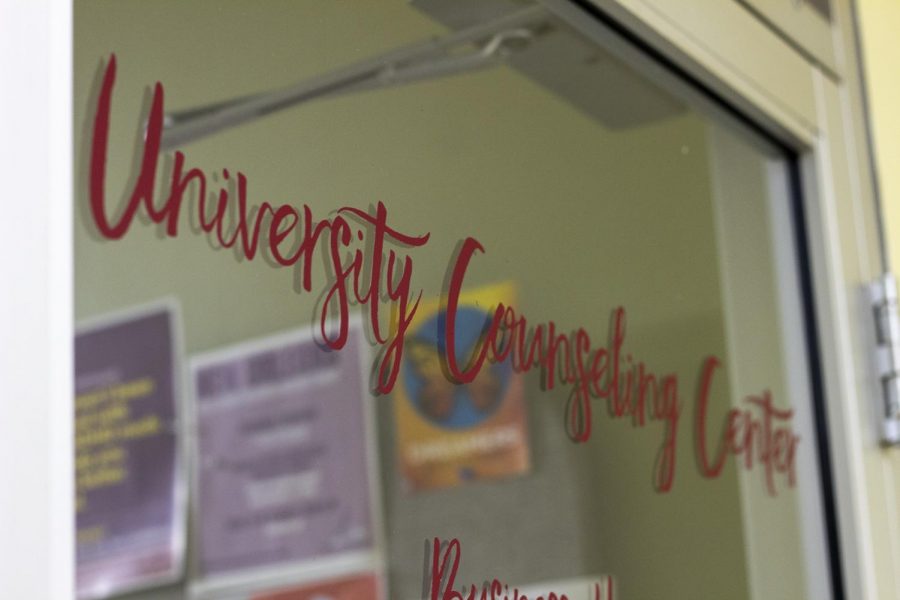More universities need to prioritize mental health
The front door of the University Couceling Center. Loyola outwardly advertises mental health resources like this. Cristian Orellana/The Maroon.
October 27, 2019
Loyola willingly publicizes information on the University Counceling Center. Many other colleges do not.
While Loyola openly advertises the University Counseling Center, many universities aren’t as open. This may be the cause of why some students do not seek counseling.
Today, more and more students are reporting fighting anxiety, depression or any other mental illness. According to the American College Health Association, about one third of college students reported some sort of mental illness affecting their academics. That is why most colleges offer some sort of counseling services for students. Here at Loyola, students can visit the University Counseling Center every two weeks at no additional charge.
This information is not new, though. Since first-years have come onto campus, they have been repeatedly told this information and given the center’s phone number. Even if someone did not know, they could just open up the home page of the website and explore the Campus Life tab, where it shows up in the drop down menu.
Unfortunately, not all colleges openly publicize this information. When going to Louisiana State University’s website, there is no easily accessible information on the services they offer. There is nothing on the home website about these services, or on the first page of search results for both “therapy” and “counseling.” And they are not alone. A lot of schools do not broadcast this information. Yes, the information can be found with a phone call, but, it points to a bigger problem.
In a world where mental illness is still heavily stigmatized and people are criticized for being “too weak” to deal with their problems, it can seem better to not do anything. If universities are not advertising mental health services, it can lead to students not seeking help for concerns. Making the decision to get help is a big deal and often one that someone’s mental illness is constantly fighting against. Difficulty finding resources is a barrier that can be interpreted as a sign that they should not get help. It is important that universities have a community that encourages seeking professional help.
Acknowledging the problem is just the first step. In order for real change to happen, people need to start a conversation. Go to social media, post information for different nearby universities on their counseling services. Call some friends, ask them to share information on their school’s services. Ask them to find out who they need to talk to so that students can easily find that information. Try to get it posted on the university’s website in an obvious place.
Loyola students are lucky to not only have mental health resources, but to have them readily available. Hopefully, more universities will give their students the same benefits.








